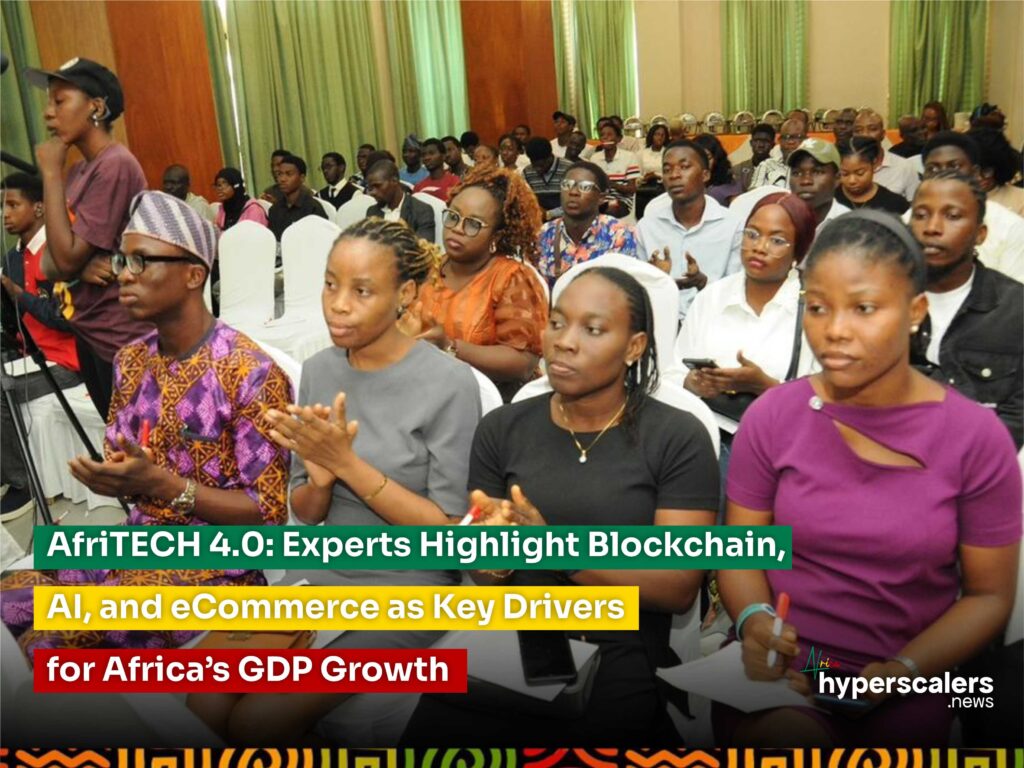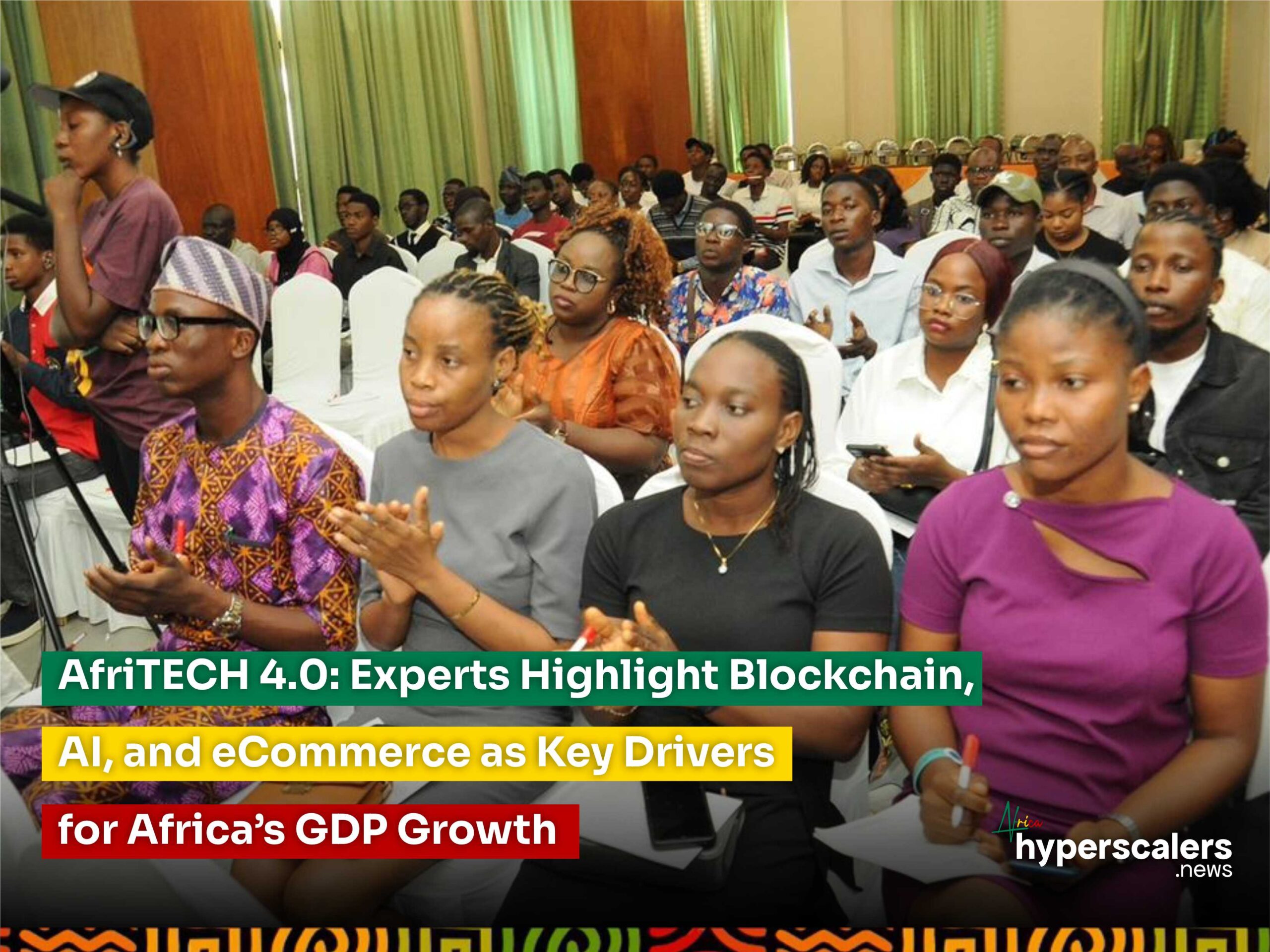Africa Tech Alliance Forum (AfriTECH 4.0) in Lagos, technology experts emphasized the transformative potential of blockchain and AI in advancing Africa’s digital economy and positioning the continent as a global technology leader.
In his keynote address, “Blockchain Technology & AI: Positioning Africa for the Future,” Kashifu Inuwa Abdullahi, Director-General of the National Information Technology Development Agency (NITDA), discussed Africa’s strategic advantages in adopting these emerging technologies to drive economic and social development. He highlighted that Africa’s mobile penetration rate, which stands at approximately 80%, coupled with its youthful population, creates an ideal environment for digital transformation.

“Both blockchain and artificial intelligence are powerful technologies that offer Africa unprecedented opportunities. By strategically integrating these technologies, we can propel Africa forward as a dynamic leader in the global digital economy,” Abdullahi stated.
Represented by Mrs. Rita Shoremi, Head of Startup Innovations and IT Solutions at NITDA (South West Zone), Abdullahi underscored blockchain’s potential to tackle challenges such as financial inclusion, governance, and property rights. He pointed out that over 57% of Africans remain unbanked, and blockchain could help extend financial services to underserved regions, contributing an estimated $300 billion to Africa’s GDP by 2025.
“Africa stands at a unique juncture. Our continent has seen remarkable digital growth, with mobile phone penetration reaching 80% across sub-Saharan Africa, according to the World Bank’s 2022 report,” he said. “Africa is also home to one of the world’s fastest-growing youth populations, with over 60% under the age of 25, according to a 2022 UN Population report. These dynamics offer a fertile ground for digital transformation, and emerging technologies like blockchain and AI have the potential to redefine key sectors that fuel Africa’s economy,” he added.
Abdullahi also emphasized the importance of supportive policies, strategic partnerships, and youth empowerment to fully harness the potential of blockchain and AI. He pointed to NITDA’s eight-pillar strategy, which aligns with Nigeria’s goals for digital literacy, infrastructure access, and global research collaboration, aiming to achieve 70% digital literacy by 2027.
Dr. Obadare Peter Adewale, Chief Visionary Officer of Digital Encode Limited, also presented insights on the role of emerging technologies in Africa. In his talk, *”Navigating The Future of Technology in Africa: The Intersection of AI, Blockchain, Cryptocurrency, and Cybersecurity,”* Dr. Adewale, represented by Oluwakayode Olatunji, CISO at Digital Encode, noted that sectors like fintech, healthtech, and agritech are increasingly adopting AI, blockchain, and cryptocurrencies. However, he cautioned that with rapid digital growth come cybersecurity risks such as cyberattacks, fraud, and data breaches, urging the need for a robust cybersecurity framework to ensure sustainable digital transformation.
Mr. Biram Fall, Regional General Manager at QNET Sub-Saharan Africa, highlighted the vast potential for financial inclusion through digital solutions, particularly eCommerce. Fall explained that with over 350 million unbanked adults across Africa, financial inclusion could be a major driver of economic growth.
“Africa’s e-commerce market is projected to reach $75 billion by 2025, driven by rising internet access and smartphone adoption. However, the region still faces challenges such as limited banking infrastructure and high cash dependency,” Fall said. He emphasized that initiatives like QNET’s “Fit Green” financial literacy program, which has trained over 1,500 young Nigerians, aim to address these challenges by promoting financial self-sufficiency and entrepreneurship.
In a presentation on “Building Digital Infrastructure for a Sustainable Digital Economy,” Prof. Ibrahim Adeyanju, Managing Director/CEO of Galaxy Backbone, stressed the importance of creating scalable, sustainable digital infrastructure to support Africa’s economic growth. Represented by Mr. Nnamdi Onoh, Field Service Engineer at Galaxy Backbone, Prof. Adeyanju explained that robust digital infrastructure is critical for fueling inclusive economic growth and empowering citizens.
“Africa’s digital journey presents immense opportunities, but it requires the right infrastructure to enable sustained economic growth. At Galaxy Backbone, we are focused on providing the digital infrastructure that powers public services, businesses, and communities across Nigeria,” he said.
Mrs. Ebehijie Momoh, CEO of AfriGoPay Financial Services Limited, also emphasized the importance of digital transformation in Nigeria, citing the country’s rapid growth in mobile penetration and internet usage. She pointed out that Nigeria’s financial inclusion rate had risen to 64% in 2023, up from the 50s just two years prior, largely due to initiatives by the Central Bank of Nigeria (CBN).
“Over 103 million Nigerians, or 45.5% of the population, are now internet users. This growth is contributing to Nigeria’s expanding digital payments landscape, which saw an estimated $730 billion in transactions in 2023,” Momoh said. She also highlighted the introduction of the AfriGo card, a domestic payment solution developed in collaboration with Nigerian banks and the CBN to reduce transaction costs and support financial inclusion.
AfriTECH 4.0 attracted both physical and virtual attendees from across Nigeria, Kenya, Egypt, the United Kingdom, the United States, South Africa, and more, marking a key milestone in Africa’s journey toward a digitally-driven future.





